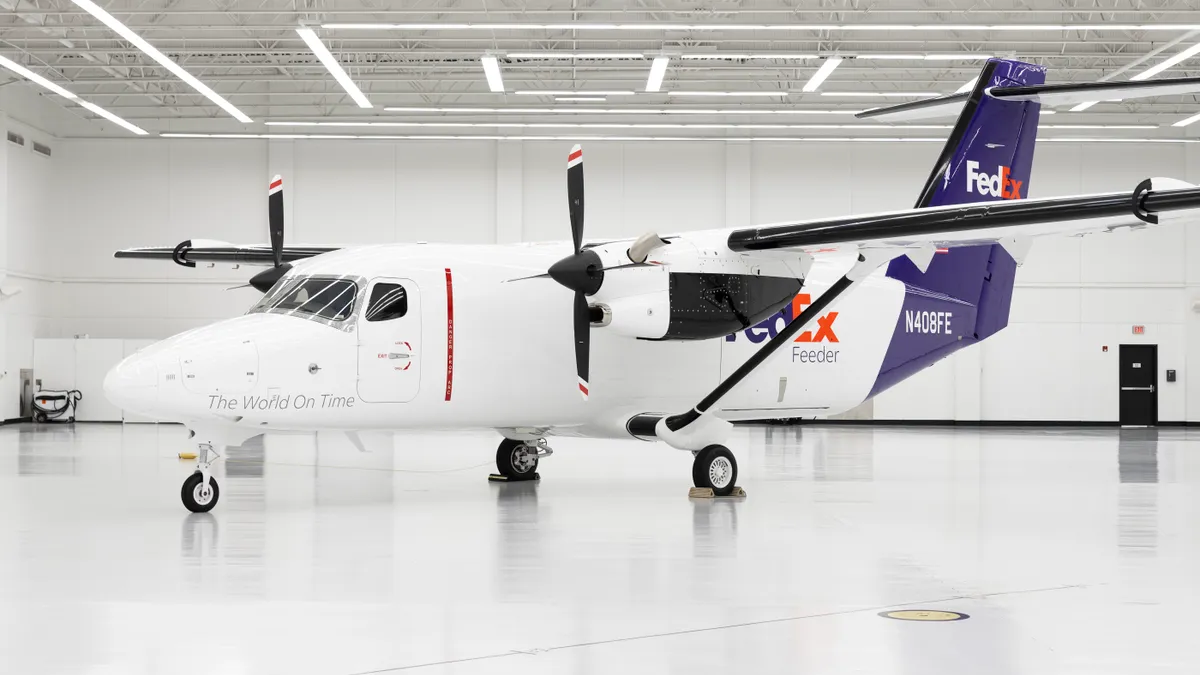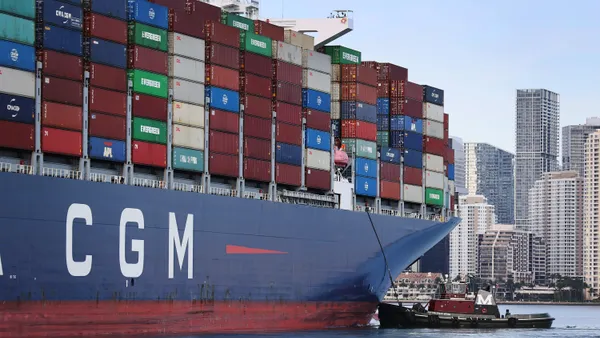Dive Brief:
- FedEx became the first company to launch cargo operations using the Cessna 408 SkyCourier, an anticipated feeder aircraft that allows for the handling of containerized cargo.
- Mountain Air Cargo, which operates other feeder aircraft on behalf of FedEx, completed the first revenue flight this month, according to a social media post.
- FedEx plans to receive at least 50 C408s to fuel its feeder operations and, so far, has taken delivery of five units, according to the company’s latest statistical book. The SkyCourier’s large cargo door, flat cabin floor and 6,000 lbs. maximum payload enables greater operational efficiency, according to the company’s website.
Dive Insight:
FedEx initially signed on as the launch partner for the new SkyCourier in 2017 and, according to the integrator’s listed delivery timeline, expects to receive seven Cessna 408 freighters by the end of FY2023, with an additional 12 units in fiscal 2024 and 2025, and 14 more units by end of FY2026.
Although the Cessna SkyCourier was initially delivered to FedEx in May 2022, the integrator assigned the aircraft to Mountain Air Cargo in November, according to Planespotters.net. After many flight tests, Mountain Air Cargo operated its first revenue flight from Tallahassee (TLH) to Orlando (MCO) on Jan. 3, before returning the next day, according to FlightRadar24.
A second SkyCourier was also assigned to Mountain Air Cargo in September 2022, according to Planespotters.net. FedEx assigned the remaining three of its five delivered units to Idaho-based Empire Airlines, which have yet to begin operations, according to Planespotters.net.
Amid a slowdown in e-commerce and parcel demand, FedEx has been working to optimize its global air network to make it more agile and flexible to generate roughly $400M in savings, CEO Raj Subramaniam told investors during a Dec. 21 earnings call. In turn, the integrator has been scaling back its air cargo operations and relying more on third-party lift.
Many of the integrator's service reductions are focused on its Express segment, according to CFO Mike Lenz.
“Year-to-date, we've reduced eight international routes and 32 U.S. domestic routes, while parking five additional aircraft,” he told investors. “This translates into pulling down U.S. domestic flight hours by 6% and international flight hours down 7% in the second quarter year-over-year.”
Although its feeder operations may be growing, FedEx is resizing its network — primarily its widebody operations — and intends to ground 11 additional aircraft by the end of the fiscal year, Lenz said.
Regarding the company’s air network, “this is about fundamentally restructuring our Express air network to be more agile and flexible to changes in demand, and also recognizing that deferred parcel and freight will be a bigger component,” Subramaniam said.
Editor's note: This story was first published in our Logistics Weekly newsletter. Sign up here.














